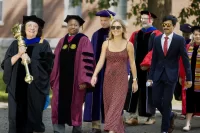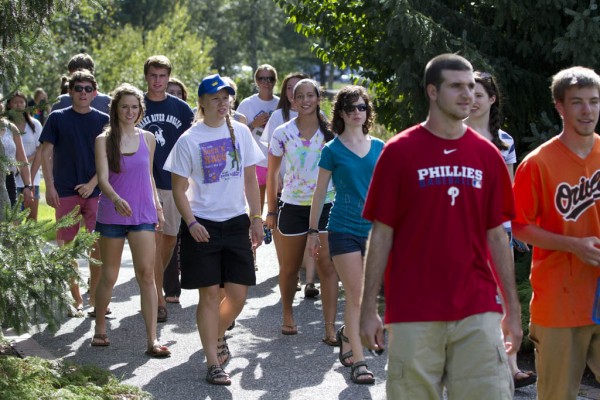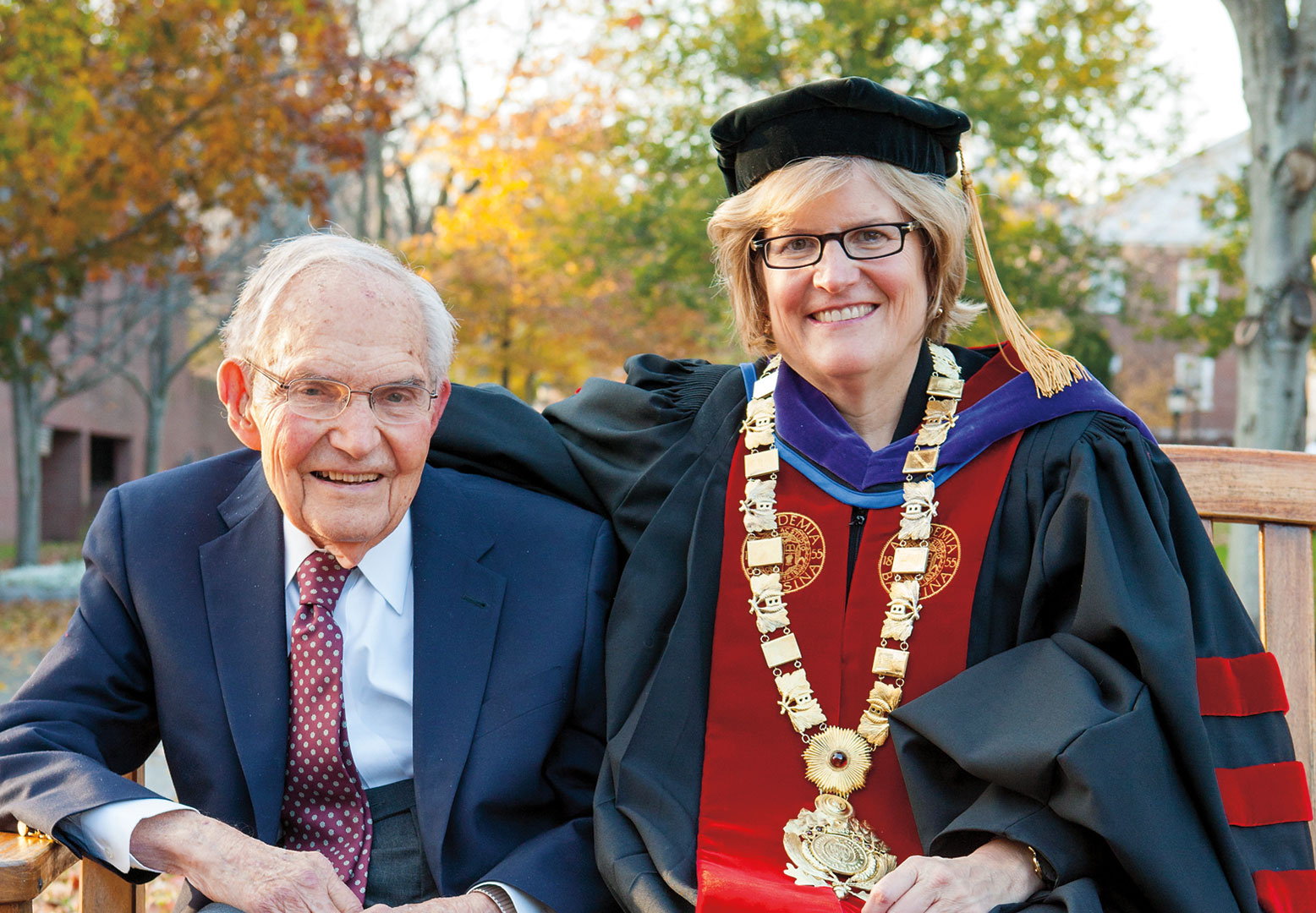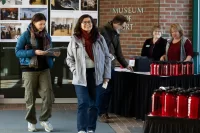
Focus will be on virtues of compromise as Bates greets Class of 2016

Members of the Class of 2016 walk to their AESOP orientation at Lake Andrews. Photograph by Phyllis Graber Jensen/Bates College.
Welcoming the most selective and geographically diverse class in the school’s history, Bates begins its 2012-13 academic year on Tuesday, Sept. 4.
President A. Clayton Spencer, who took office July 1, offers her first official address as head of college during the annual Convocation ceremony, which marks the opening of the academic year. The eighth president of Bates, she will welcome the 503 members of the Class of 2016, as well as 17 transfer students new to Bates.
The event begins at 4:10 p.m. on the historic Quad, at Campus Avenue and College Street. Rain site is Alumni Gymnasium, 130 Central Ave.
Stephen M. Engel, assistant professor of politics, will give the Convocation address. Titled On the Responsibility of a Liberal Arts Education, it will relate the need for compromise in a successful democracy to the attitudes that enable a successful education.
Dean of the Faculty Pamela Baker, Student Government President Umar Khan and Multifaith Chaplain William Blaine-Wallace will also speak during the ceremony.
Convocation addresses
Spencer’s and Engel’s addresses will each refer to the book that the class of 2016 was asked to read during the summer, The Spirit of Compromise: Why Governing Demands It and Campaigning Undermines It, by Amy Gutmann and Dennis Thompson (Princeton University Press, 2012). Examining the qualities found in both effective governance and campaigning for office, Gutmann and Thompson argue that the rejection of compromise in contemporary American politics is linked to the development of a “constant campaign” mindset that leaves little room for actual governing.
In her remarks, titled Lessons in Compromise and Life Learned from a Master, Spencer will reflect on the Gutmann-Thompson book in light of her experience as a staffer in the U.S. Senate. From 1993 until 1997, as chief education counsel for the Senate Committee on Labor and Human Resources, Spencer worked for the late Sen. Edward M. Kennedy, a politician known for his ability to cross ideological lines to advance important legislation.
Engel, who came to Bates a year ago, will draw connections between higher education and effective governance in a democracy. “Governing requires working with one’s opposition, a prudent compromising on principle to achieve outcomes for the common good and clear elaboration of intersecting interests rather than stark distinctions,” he explains.
Good governance, he says, mirrors “the same approach that the Bates education strives to inculcate: an openness to evidence, an eagerness toward meaningful debate, a readiness to re-evaluate and the willingness to converse with honesty and integrity.”
The class of 2016, by the numbers
For the new class, Bates accepted 26.6 percent of the 4,905 applicants, the most selective the college has ever been. With 503 of the 1,304 admitted students choosing to enroll, the “yield” rate of 39 percent is an increase of 3 percentage points over last year’s rate.
The members of the class are 54 percent female and 46 percent male. A tenth of the class is from Maine, with seven students from Lewiston-Auburn. Eight percent come from other countries — 26 countries in all, from Afghanistan to Zimbabwe.
A third of the class ranked in the top 5 percent of their high school class academically. Ten percent of the incoming students represent the first generation in their families to attend college, and 16 percent are U.S. multicultural (African American, Asian American, Hispanic or Native American/Pacific Islander).
The speakers
Named as Bates’ president late last year, Spencer came to the college from Harvard University, where she served most recently as vice president for policy. Widely regarded as an effective and collaborative higher education leader, Spencer worked with four Harvard presidents to shape key initiatives over the past 15 years. She’s a graduate of Williams College and Yale Law School.
Engel’s research interests include American political development, constitutional development, relations among the branches of government and social movements, particularly gay and lesbian mobilization for social change.
He is the author of American Politicians Confront the Court: Opposition Politics and Changing Responses to Judicial Power (2011, Cambridge University Press), examining hostilities directed toward the federal judiciary by Congress or the president; and of The Unfinished Revolution: Social Movement Theory and the Gay and Lesbian Movement (Cambridge University Press, 2001).




